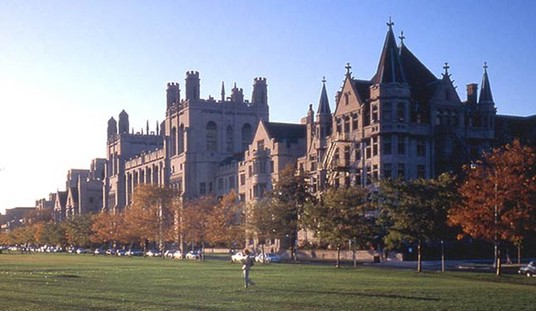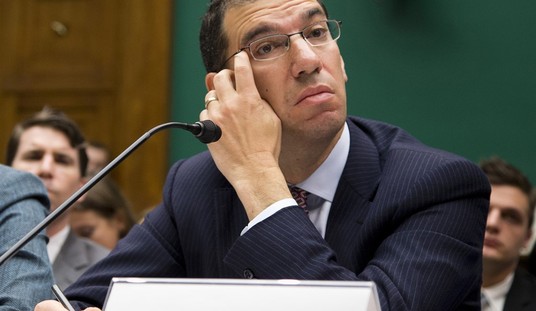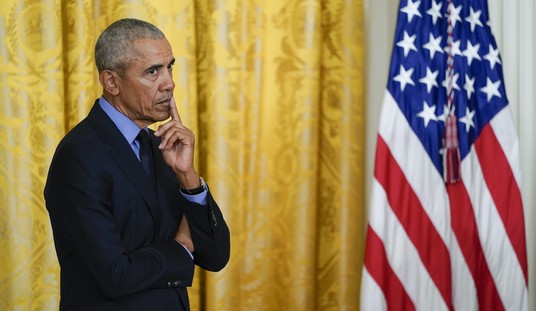This is an interesting (and familiar) counterpoint to what he said last week about Biden wanting to “hurt the Bible, hurt God.” When he’s pandering to evangelicals or some other core constituency, Trump will nod at their concerns but with the bare-minimum effort. He’s not going to make anything resembling a complex policy argument against Biden to appeal to Christian voters, certainly not in unscripted remarks, but he’ll cut to the chase by highlighting the subtext of those policy arguments. Biden is anti-Christian, he says. He’s anti-God. His rhetoric on gun rights is similar, thin on specifics but filled with references to “our wonderful Second Amendment.” It’s political signaling in its purest form, just nodding at the concerns of different groups without betraying any genuine interest in them.
When he’s not pandering to a core constituency, though, he won’t bother to nod. He tends to speak his mind on foreign policy because few voters have such deeply held views on that subject that their votes in November might turn on it. So whereas Trump might pay lip service to the idea that his Democratic opponent wants to “hurt God,” he won’t bother to pay lip service to the American idea that it’s necessarily bad when a totalitarian regime grabs a small democratic satellite by the throat.
He has diplomats for that, after all. Here’s Mike Pompeo with a perfectly traditional American denunciation of China’s arrest of Hong Kong media tycoon Jimmy Lai:
I’m deeply troubled by reports of the arrest of @JimmyLaiApple under Hong Kong’s draconian National Security Law. Further proof that the CCP has eviscerated Hong Kong’s freedoms and eroded the rights of its people.
— Secretary Pompeo (@SecPompeo) August 10, 2020
Now here’s Trump sounding almost tickled that a major foreign finance hub is under China’s boot, giving investors a reason to come here instead:
Fox Sports Radio host Clay Travis bashed the NBA for not speaking up against human rights abuses by China, then asked Trump why Americans should care about its crackdown on freedom in Hong Kong.
Trump's response: pic.twitter.com/VwyFbXKMmS
— Daniel Dale (@ddale8) August 11, 2020
Maybe we’ll get lucky and some terrorist group will set off a nuke in London, decimating their finance markets too.
That’s a baby-soft softball that was tossed to him by interviewer Clay Travis, teeing him up to condemn China. Trump has every incentive to do it too, as being tough on China is a core part of his campaign message and speaking up in defense of Hong Kong’s courageous resistance would earn him some brownie points with voters here who dislike his illiberal tendencies. He just can’t do it. Or rather, it doesn’t even occur to him to sympathize with them.
Not only that, but he persists in the belief (which he strongly displays when discussing trade, especially trade deficits) that international economics is a zero sum game, with less for Country A necessarily meaning more for Country B. There’s no sense here of how Hong Kong’s fall might adversely affect American business interests. And no sense of how it might be damage America’s long-term strategic interests to have the one outpost of liberalism in a sinister surveillance state brought low. Hong Kong’s western-style freedom and economic success were a counterpoint on mainland China’s doorstep to Beijing’s insistence that communism is the only path to greatness. That’s gone now.
For the second time in the past week, Ben Sasse felt obliged to criticize Trump:
“There shouldn’t be a shred of doubt about this,” the Nebraska Republican told the Washington Examiner. “The American people are on the side of Hong Kong’s freedom-seekers and against the communist thugs committing human rights abuses. We are Americans, and we take the side of freedom — that’s who we are.”
If that’s “who we are,” why’d we elect Trump? Why’d we nominate him in the first place? “Who we are” arguments are uniquely unpersuasive in 2020.
It must be noted, though: As with Russia, while Trump speaks like someone who doesn’t care a whit about western values, he sometimes governs differently. A month ago he slapped sanctions on China for imposing its draconian new security law on Hong Kong. Four days ago his administration added individual sanctions for Hong Kong’s puppet governor and 10 other high-ranking officials. His NSA, Robert O’Brien, also harshly criticized Lai’s detention by Chinese authorities: “These arrests are also a clear effort to intimidate pro-democracy and political opposition figures and suppress Hong Kong’s free and independent media, which have played key roles in the city’s character and success.”
That strange disjunction between Trump’s words and his White House’s deeds has recurred throughout his presidency. Remember Nikki Haley railing against Russia on the floor of the UN while Trump was busy trying to broker detente with Putin? His presidency has always had a split personality on foreign policy, with one personality that of the president himself and the other that of the many traditional Republican hawks who staff his Pentagon and State Department. Who can begin to guess how they sold him on the idea of sanctioning China over Hong Kong when he seems to think it was in America’s interest for the Chinese to have behaved as they did? Presumably it was enough for him that the sanctions would polish his anti-China cred so soon before the election. Beyond that, I can’t guess. But it’s the split personality at work once again.
Here’s the audio of him and Travis discussing Hong Kong today.








Join the conversation as a VIP Member